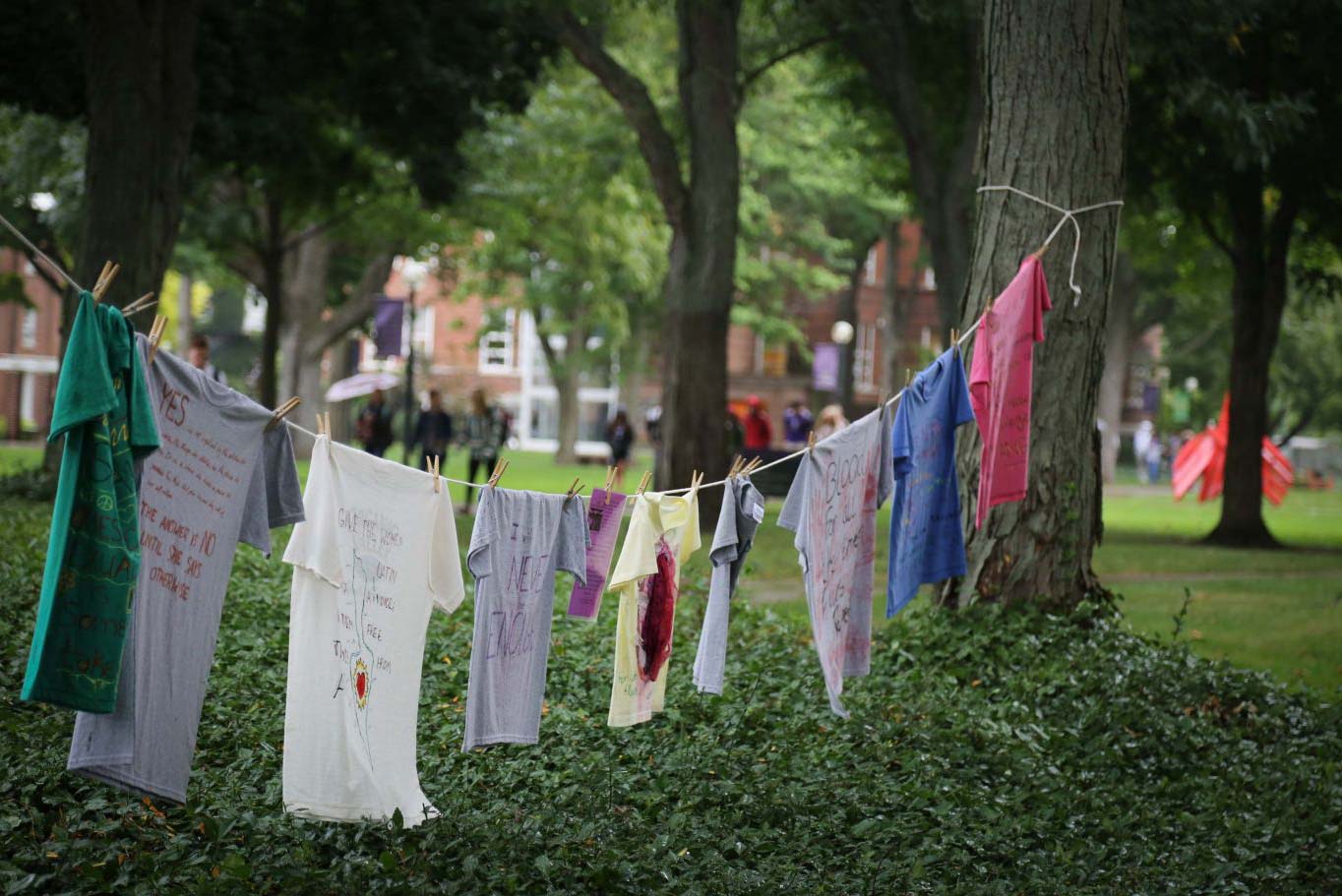In support of the Clothesline Project, GC’s Prevention Intervention Network (PIN) hung T-shirts in Schrock Plaza last weekend during sexual assault awareness month.
The shirts had messages from survivors of sexual assault and violence, in an effort to “air the campus’ dirty laundry” and remind the Goshen College community of the reality of sexual violence and sexual assault.“[The] quantity and type of violence depicted on the shirts was shocking and powerful to see all in one place,” one student observer said.
The Clothesline Project, a nationwide project, first started in Massachusetts in 1990 when Rachel Carey-Harper realized that while 58,000 soldiers had died in the Vietnam war, 51,000 women were killed by men who claimed to love them in the same time period.
To raise awareness, Carey-Harper encouraged friends of hers to design T-shirts to affirm that violence happens everywhere and to provide a space for victims to share their testimonies. The effort grew quickly, as the grassroots movement spread to other organizations and colleges.
Kendra Yoder, director of women’s and gender studies and PIN Advisor, noted that different GC groups have put on the Clothesline Project at least half a dozen times over the years.
At GC, some of the shirts have stories from students here, while others are taken from a national context.
One T-shirt’s story read: “It took me hearing my story at Goshen Monologues to realize that I had been assaulted.”
Other shirts told stories of unhealthy relationships with more graphic depictions of stories from sexual assault survivors.
Drew Smoker, a PIN member who helped with this project, observed that it can be easy to forget that sexual assault happens here.
“Even though Goshen has a great community,” she said, “we are not exempt from harassment.”
In years past, the project received some pushback from people who weren’t aware of the project and had unpleasant and unwanted reminders of past experiences.
By having support people in the plaza throughout the day on Friday and advertising in the Communicator in advance, Smoker hopes that they were able to address those concerns.
This year, by having the T-shirts facing inward towards the square, Smoker said they were able to make it a largely voluntary experience.
Yoder pointed out that during the pandemic, it can be especially important to find support. She lamented the rise in “intimate partner violence” as more people have been stuck at home.
The pandemic, quarantine and social distancing measures strained a lot of relationships, and Yoder wants students to know that “they are supported … and that it’s always okay – whatever your circumstances – to let someone know what’s happening.”
Everyone knows what PIN is, but Smoker wonders if people sometimes “forget that they do more than just the ICC presentations.” She was glad for this chance to remind people of the reality of sexual assault and the support that PIN provides.
Yoder also expressed similar sentiments, wanting to remind people that PIN is a service for students throughout the year, providing “outreach, connections, awareness initiatives, and support for anyone who needs it.”



